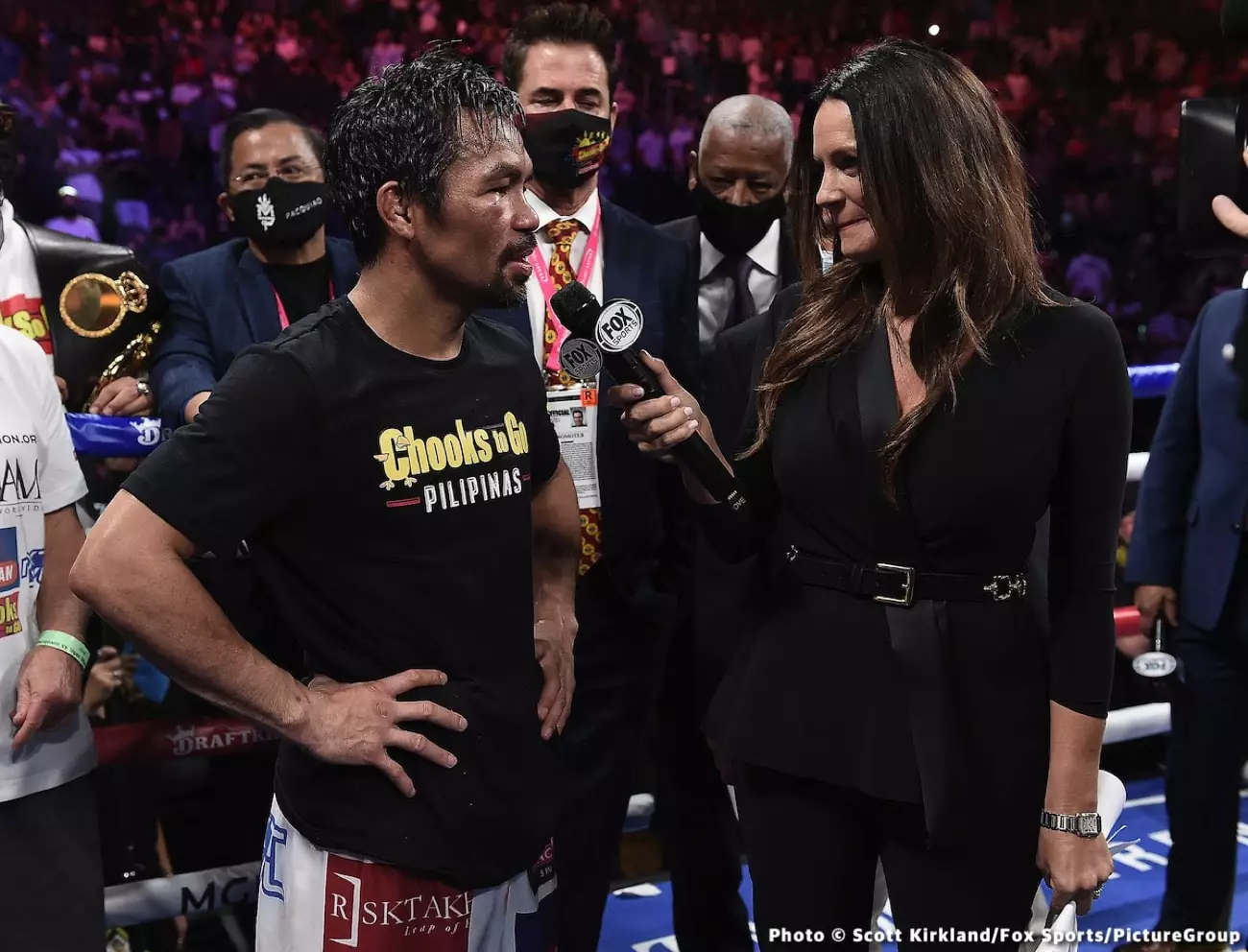In the history of boxing, there are fights that resonate not just for the punches thrown but for the stories that unfurl behind the scenes. The bout between Manny Pacquiao and Joshua Clottey, which took place 15 years ago at the grand Cowboys Stadium, is one such fight. Initially hyped as a spectacle that would showcase the might of two notable contenders, it soon morphed into a controversial encounter that left fans bewildered and analysts scratching their heads. The narrative surrounding the fight has evolved, shedding light on how external forces can influence the very essence of competition.
Pacquiao, known for his explosive speed and ferocity, reached a zenith in his career at the time, boasting a record of 50 wins with only three losses. Conversely, Clottey, the older fighter at 35, had established himself as a respected contender with a commendable record, but he also carried the weight of expectation from fans who anticipated a more riveting performance. Set against the backdrop of the boxing world clamoring for a legendary fight between Pacquiao and Floyd Mayweather, the stakes were undeniably high. Unfortunately, as the bout unfolded, it quickly became clear that Clottey was not the challenger many had anticipated.
What Went Wrong in the Ring?
From the opening bell, the tone of the fight felt off. Pacquiao, recognized as one of the most skilled welterweights, delivered punch after punch while Clottey appeared rooted to the canvas, a mere spectator in his own fight. Ultimately, the judges would score the contest overwhelmingly in favor of Pacquiao, a perplexing outcome that led to subsequent scrutiny of Clottey’s hesitance and strategy, or lack thereof. Fans left the arena with an unsettling feeling; they had witnessed a spectacle that turned into a display of one-sided dominance rather than the epic clash everyone had been anticipating.
Clottey’s tactics—or rather, the absence of them—raised eyebrows. Speculation began to swirl: had something ulterior affected his performance? Thoughts flitted from the mundane to the sensational as some conspiracy theorists whispered about a fix. They reasoned that if Clottey wasn’t genuinely attempting to win, he must have had a reason to hold back, prompting discussions about whether personal issues, contractual disputes, or something more pervasive might have been at play.
The Financial Shadows and Personal Struggles
Years post-fight, Clottey shattered the silence with revelations that raised more questions than answers. He publicly expressed regret over his management decisions, exposing a deeply flawed agreement he had with his then-manager, Vinny Scolpino. Instead of earning the sizable paycheck he anticipated from this high-profile fight, Clottey claimed to have been swindled. In what can only be described as a travesty of athlete management, he explained how he found himself essentially fighting for someone else’s benefit rather than his own.
Imagine being in the ring—physically prepared, yet mentally shackled by the knowledge that your manager is profiting off you while you barely see a fraction of your potential earnings. To know that negotiations left him with only a meager share of the pay-per-view income meant that Clottey was not merely fighting Pacquiao; he was waging a war against financial injustice. His declaration of having “three years left” on a contract he regretted allows us to understand that his compliance flowed from a place of desperation, of needing to fulfill obligations that ultimately seemed indebted to someone other than himself.
Looking Back: Was the Fight a Mere Performance?
In hindsight, the enigmatic nature of Clottey’s performance looms large. If Clottey genuinely believed he had been deprived of his rightful earnings, then his lack of engagement in the fight takes on a far more tragic shading. While some might criticize him for not putting forth his best effort, it’s essential to acknowledge the systemic issues that may have influenced such a decision. How often do athletes find themselves in situations where they wrestle with loyalty, integrity, and economic survival? Clottey’s admission reframes the narrative, suggesting that the fight against personal and financial adversities can overshadow the contours of a sporting contest.
As we reflect on that March night, the boxing dialogue surrounding Pacquiao vs. Clottey transcends mere statistics or boxing maneuvers. It invites fans and analysts alike to reconsider the great battles fought within the boundaries of the ring, and perhaps more critically, those fought outside of it. The boxing community would do well to remember that behind every thrilling event lies complex stories that often remain obscured, waiting for the right moment to be revealed.

